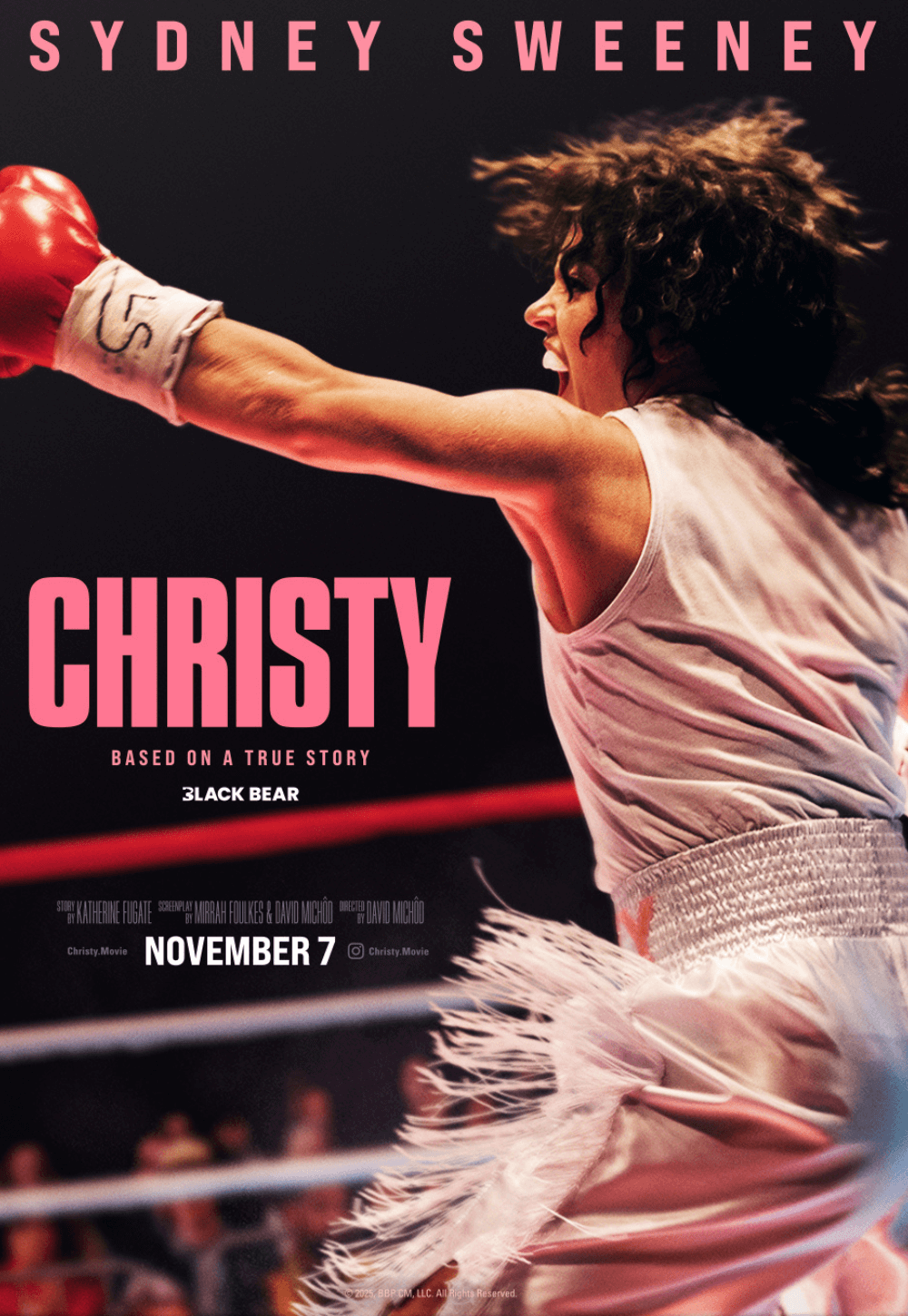Movie Reviews
‘Tiny Lights’ Review: Empathetic Czech Drama Sees the World Through a Child’s Eyes

If you’re lucky enough to remember memories from your early childhood, you’ll know they tend to be fragmentary, skewed from an outlook incapable of fully grasping the adult world. Czech filmmaker Beata Parkanova captures that feeling beautifully in her film receiving its world premiere at the Karlovy Vary International Film Festival. Related entirely through the viewpoint of a six-year-old girl, Tiny Lights emerges as a small gem.
It helps that the little girl, Amalka, is played by adorable child actress Mia Banko, possessing wide, saucer eyes that are endlessly expressive and long red hair of which Heidi would be jealous. In the opening scene, Amalka hears voices emanating from a closed-door room and, naturally curious, attempts to listen. She hears her grandmother angrily say to her mother, “Happiness? Save it for the fairy tales,” but she has no idea of what it means.
Tiny Lights
The Bottom Line Skillfully observed.
Venue: Karlovy Vary International Film Festival
Cast: Mia Banko, Elizaveta Maximova, Marek Geisberg, Veronika Zilkova, Martin Finger
Director-screenwriter: Beata Barkanova
1 hour 16 minutes
So she goes to play with her very submissive cat, apparently named Mr. Cat. But she tests Mr. Cat’s patience by putting him inside a wooden chest, from which her grandfather (Martin Finger) soon rescues him. She returns to the room, and when she opens the door, the adults grow silent. “I’m bored,” Amalka says petulantly, and her grandmother (Veronika Zilkova) tries to assuage her by promising that she’ll take her to the lake that afternoon.
After naughtily picking flowers that we later learn came from a neighbor’s garden, Amalka has soup for lunch, unaware of the tensions surrounding her. Her grandparents live up to their promise by taking her to the lake, where her grandfather teaches her how to dive. They hike in the woods and pick blueberries, but Amalka throws a tantrum when told they have to leave.
And so the film goes, with Amalka trying to amuse herself as the adults seem to be engaged in tense confrontations, especially when her mother (Elizaveta Maximova) shows up with a strange French man and announces that she’s going with him to Prague. Amalka, of course, doesn’t comprehend what’s happening except when it relates to her, as when her father (Marek Geisberg) gently upbraids her for picking the flowers and tells her that she’ll have to apologize to the neighbor. As the day ends, she goes to bed, unaware of the fissure in her parents’ relationship, and her father wearily reads her a bedtime story that she’s heard a thousand times before but clearly still finds fascinating.
Even with its brief running time, Tiny Lights demands a certain degree of patience with its intense focus on banal childhood preoccupations. The filmmaker also indulges in stylistic flourishes — principally quick inserted shots that look like they were captured on 8mm and feature a series of close-up views of objects and facial features — that are more distracting than illuminating. The strained attempts at artiness just feel self-conscious.
But for most of the film’s running time, Parkanova maintains tight control over her material, making us fully identify with little Amalka and her preoccupations. The film presents things from her viewpoint, even physically; DP Tomas Juricek often places the camera low down, aligning with her diminutive size. The story takes place over the course of a single day, and its poignancy derives from the fact that we, if not Amalka, are fully aware that her life is going to change, possibly forever.
Or maybe she does realize it, as evidenced by the haunting, lingering final shot, in which we see the silhouette of her body as she peers through the large windows of her bedroom, as if trying to see the world beyond her limited perspective.

Movie Reviews
Jamie David Langland’s ‘THE CELLAR’ (2025) – Movie Review – PopHorror

Psychological thrillers have to be my least favorite genre of all time. Rarely does a movie get by on just dialogue before I give up. The Cellar started out as such, and I was getting ready to lose interest. As I got further, I learned to appreciate the film. It’s a tough call, but I was fully entertained by the story. I really should learn a lesson and sit through these types of films more often.
Let’s get into the review to find out my real feelings.
Synopsis
A young girl wakes up in a dim underground cell, with no memory of how she got there. As she fights to escape, sinister secrets resurface, blurring the line between reality and her own buried traumas.
The Rundown
This is what turns me off to psychological thrillers. The lines between reality and horror don’t quite fit in my humble opinion. Whether it hides behind a horror facade or just outright rushes a story to fit into a 90-minute film. The stories require a lot more time to explain without confusion. Everything becomes complex and a think piece instead of just plain enjoyment.
The Cellar is the film that made me second-guess all the movies I have ever written about, where I say there’s no love in reality, so horror movies are an escape for me. I like to be entertained, not just a lack of understanding. The film does move slowly, and sometimes it confuses you, but in the end, you can piece together the story. It becomes simplified as the movie progresses. It brings a sense of clarity.

Hello Darkness
The dark setting also gave the movie more “pop”. You would think a dark cellar is redundant; however, the film definitely becomes more interesting and eerie as we look past the characters and experience flashbacks. The film has almost a Silent Hill vibe when it comes to explanation. That isn’t a bad thing at all, seeing as I have a Silent Hill tattoo and a small obsession with the games.
This is honestly what I picked up on after about 20 minutes of the movie. It is almost as if the film is hard to piece together on purpose. The film is like a tapeworm slowly creeping into your brain. It stays there and takes over your mindfulness. The film makes you feel a certain level of paranoia because, of course, this story could easily be reality. We have always had a way of looking at extreme religious intent and walking away quietly due to their stature in the community.
In The End
I didn’t find too many problems with The Cellar. The director passed the test on the film. Though I was about to give up hope as usual, I am extremely glad I gave it a longer shot than most. I would have missed out on a great film if I had told myself it wasn’t my interest, and being ready to talk down the entire film. I can’t argue about the significance, and Jamie David Langland’s directorial debut is outstanding. I look forward to seeing more films under their name as time progresses.
Movie Reviews
Tu Maza Kinara Movie Review: Suffers from poor direction and a story that goes nowhere

A story that focuses on the feelings for long enough to forget the facts. Tu Maza Kinara lacks a B-plot, leading to a disproportionate time spent on the minutia, while ignoring directional story progression.Suraj (Bhushan Pradhan), a perfectionist, is shattered when an accident results in the death of his wife (Ketaki Narayan) and the psychological mutism of his daughter (Keya Ingale). His perfect life now has to make space for his daughter’s special needs. The film poses next to no challenges for the main character, removing, as a result, any scope of development. Rife with inconsistencies, the film shows ‘psychological deafness’ being cured by a hearing aid and Suraj teaching his previously speech-abled daughter to pronounce Aai and Baba. The cinematography for the songs is quite possibly the only saving grace for Tu Maza Kinara. A film that has exemplary colour grade and a capable cast suffers at the hands of poor direction and a story that goes nowhere.
Movie Reviews
Christy

With Christy, David Michôd directs the story of Christy Martin, who single-handedly popularized female boxing from the early 1990s to the 2000s under the nickname coined by huckster-promoter Don King: “The Coal Miner’s Daughter.” Sydney Sweeney plays her in a performance that many critics have hailed as transformative. However, underneath frumpy clothes and an unconvincing wig, Sweeney never disappears into the role—it’s not, say, Linda Hamilton changing her physique to become a badass for Terminator 2: Judgment Day (1991). And as the standard sports movie template descends into a dark account of drugs and domestic abuse, Christy bears a curious similarity to Benny Safdie’s The Smashing Machine, another underwhelming sports biopic this year with a showy performance at the center. Produced in part by Sweeney, the whole production screams Oscar bait in the most cloyingly pedestrian way.
Raised in West Virginia, Christy, a sporto and closeted lesbian, clashes with her conservative, disapproving parents (Merritt Wever, Ethan Embry) who want her to see a priest to “get her straightened out.” Instead, she competes in an amateur boxing match “for fun,” with little knowledge of the sport: “All I knew was that I had to beat the shit outta that bitch before she beat me,” she remarks after her win. Soon, she meets a potential trainer, Jim (Ben Foster), whose creep factor is off the charts. Despite his being decades older and saddled with a beer belly and bad combover, Christy falls for him, ignoring his possessiveness and virulent anti-gay views while buying into his claims that he will make her “the greatest female fighter in the world.” Her mother certainly approves, believing Jim is her ticket to a “normal life.” Meanwhile, the viewer sees all the warning signs and awaits the inevitable fallout.
Michôd and Mirrah Foulkes wrote Christy, and they adhere to a typical sports movie structure, charting Christy’s meteoric rise to fame while ignoring the real boxer’s early-career losses and draws in favor of presenting a seemingly flawless winning streak. Cue the typical training and fight montages, here set to Young MC’s “Bust a Move.” While building a name for her, Jim goes full Vertigo (1958) and tells Christy to cut her hair so it’s not so “butch” and puts her in an all-pink getup so she looks “cute.” Before long, they sleep together, marry, move to Florida (where else?), and present themselves as an ambitious Average American couple. “I’m just a regular wife who happens to knock people out for a living,” Christy claims. She also shuts down any feminist take on her success with the press, pronouncing she doesn’t care about advancing other women or getting more money for them; she only cares about herself and her own success.
Christy’s brainwashing by Jim and her parents grows even more twisted when boxing doesn’t pay the bills, prompting him to arrange seedy hotel room fights for her with a 300-pound man for cash, and later, to record porn tapes with her for the underground market. That’s even after she becomes the first woman to fight on Pay-Per-View—a sequence shot in slow-mo and set to choral music, striking an ill-fitting tone compared to the rest of the movie. Additionally, very few of the boxing matches impress. They’re sloppily choreographed and shot by cinematographer Germain McMicking, who doesn’t bring any distinct visual flair to the proceedings. All the while, Christy is surrounded by people who don’t stand up for her, regardless of witnessing what’s obviously an abusive relationship. Her mother dismisses her claims that Jim has become violent (“You sound crazy,” she tells her daughter, in a maddening scene); she’s more concerned about keeping up appearances. Only Christy’s onetime opponent and later training partner—and later still, wife—Lisa Holewyne (Katy O’Brian) can see Christy’s true self enough to question the pretense.
“You make it real easy for people to dislike you,” Lisa observes. Indeed, she likes to talk smack in front of the press, calling out Lisa as a lesbian while passing as straight. That’s part of what makes her a success: performing for the camera. However, she doesn’t exactly endear herself to the viewer; I struggled to get on Christy’s side, which made the 135-minute runtime feel particularly long, especially in the repetitive second half. Although Jim’s domestic abuse, not only at home but also in the ring while sparring, gives us no choice but to empathize with her. Her only hope seems to be her former high school girlfriend, Rosie (Jess Gabor), who comes in and out of Christy’s life when the story needs her. Soon, drugs enter the mix, and the increasingly paranoid Jim reacts with a brutal attack that brings some finality to their marriage.
Sweeney once again never convinces in her performance, which is becoming a theme in her work, looking at last year’s Immaculate and this year’s Eden. Foster and Wever fare better, but like Sweeney, they’re all wearing equally silly wigs that render their performances unintentionally funny. Similar to The Smashing Machine, which was based on an earlier documentary and sanitized in its dramatization, viewers might be better off watching the documentary on this subject. Released on Netflix, Untold: Deal with the Devil (2021) tells Martin’s complex story without the typical overdone sports movie structure. Michôd, once a promising Australian filmmaker behind Animal Kingdom (2010) and The Rover (2014), appears to have lost his edge in recent years, starting with War Machine (2017) and The King (2019). With Christy, his approach is annoyingly stuffed with big speeches and dialogue that sounds like a Hallmark movie, and its generic, familiar quality never gives way to something worth the hype.
-

 Milwaukee, WI1 week ago
Milwaukee, WI1 week agoLongtime anchor Shannon Sims is leaving Milwaukee’s WTMJ-TV (Channel 4)
-

 News1 week ago
News1 week agoWith food stamps set to dry up Nov. 1, SNAP recipients say they fear what’s next
-

 Alabama1 week ago
Alabama1 week agoHow did former Alabama basketball star Mark Sears do in NBA debut with Milwaukee Bucks?
-

 Culture1 week ago
Culture1 week agoVideo: Tyler Mitchell Breaks Down Three Photos From His New Book
-

 Culture7 days ago
Culture7 days agoVideo: Dissecting Three Stephen King Adaptations
-

 Seattle, WA3 days ago
Seattle, WA3 days agoESPN scoop adds another intriguing name to Seahawks chatter before NFL trade deadline
-

 Seattle, WA1 week ago
Seattle, WA1 week agoFOX 13’s Aaron Levine wins back-to-back Jeopardy! episodes
-

 San Diego, CA1 week ago
San Diego, CA1 week agoAdd Nick Hundley, Ruben Niebla to list of Padres’ managerial finalists














